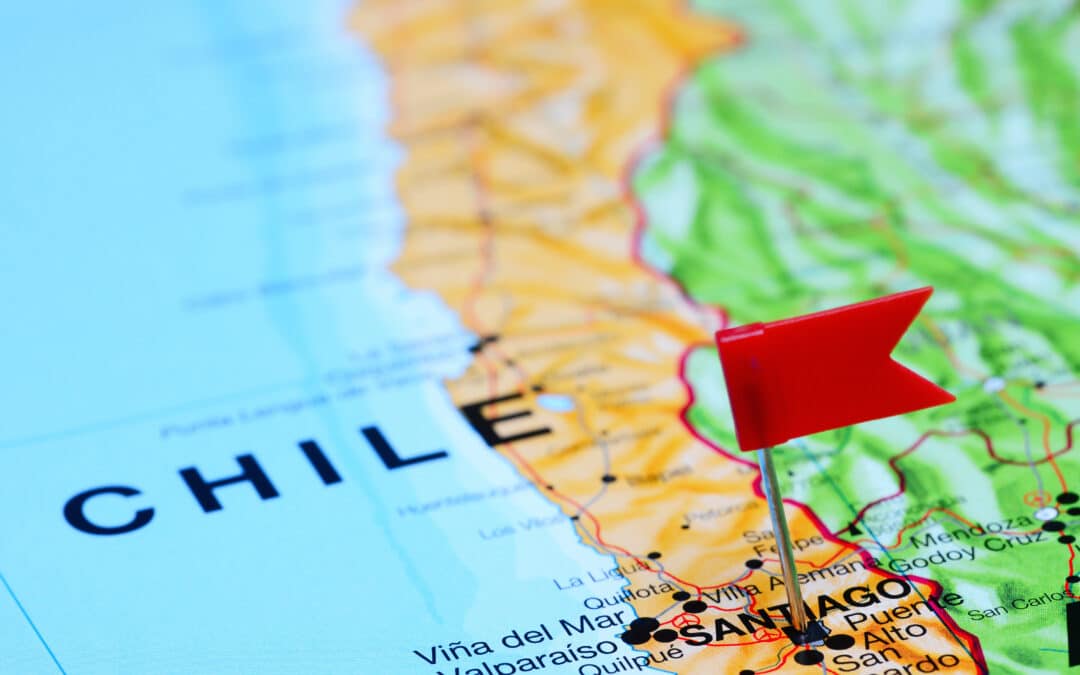Are you planning a trip to El País de los Poetas (the country of the poets)? We’ll you’re lucky, it’s a beautiful place to visit. You can go to great museums, observe their breathtaking landscapes, walk through their national parks, learn about their amazing writers, and try their food.
But if you really want to experience their culture, then you should know their language. And we’re not speaking about the Spanish you learn at school. No, no. We’re telling you to learn some Chilean Spanish idioms.
Idioms are an important part of every language’s slang. And since Spanish is a wide language that many countries speak, the idioms change from place to place. Chilean idioms in particular are very varied; it’s as if Chilean is a language of its own.
Learning Spanish will help you ask questions when necessary, order at a restaurant, and move easily around the country. But learning at least a few of their idioms will help you engage in rich conversation with locals.
As well as knowing their culture better and understanding what they talk about when they use one of these expressions.
15 Chilean Idioms
1. Al tiro
The word “tiro” in Spanish means a gun’s shot. It’s also the first person present tense in its indicative form of the verb “tirar” (to throw / to pull).
But the Chilean idiom “al tiro” has a completely different meaning. Basically, it’s used to say “immediately”, “fast”, “now”. For example: Let’s say your friend tells you: “Ven por mí al trabajo, al tiro”. She’s saying: “Come pick me up at work, right now”.
2. Estar listeilor
“Listo” means “ready”, so “listeilor” comes from it. This idiom means “to be ready”.
If you have trouble with the pronunciation, just think of the famous actress Liz Taylor. This will help you a lot, as “listeilor” sounds just like her name.
3. Hablar cabezas de pescado
Literally this means “to speak fish heads”, which sounds completely senseless, ¿right? Well, that’s exactly what it means: to speak things that have no sense, that are incoherent or dumb.
So, if you travel to Chile and somebody tells you “¡deja de hablar puras cabezas de pescado!; they’re telling you to stop saying incoherences. You might need some TruFluency Spanish classes to stop speaking “cabezas de pescado”.
4. Pasarla/pasarlo chancho
“Chancho” means pig. “Pasarla chancho” or “pasarlo chancho” means to have tons of fun and a very good time. So, if you really enjoyed your trip to Chile, you could say: “Lo pasé chancho durante mi viaje por Chile”. (I had a lot of fun during my trip to Chile).
5. Echar la foca
It means to scold someone very angrily. So, for example, you could use this phrase to tell your friends your mom scolded you. But it’s also used to challenge someone, as well as when someone is expressing their anger, insulting or screaming at someone.
For example: “Mi novia me estaba echando la foca, porque no saludé a sus padres”. (My girlfriend was angry at me, because I didn’t say hi to her parents).
Another example would be when your classmates are bullying you and challenging you to a fight, you could say: “Me están echando la foca”. (They’re insulting me and challenging me).
6. Cachái
This comes from the English “to catch”. In Chile it’s used as “entender” (to understand). So, for example, when a Chilean asks you “¿cachái?”, they’re asking if you understand. It’s like “catching” the meaning of something, like getting it.
7. Se me echó la yegua
“Yegua” is mare. But this idiom it’s not about this animal; it’s actually used to say that you’re tired.
8. Estar filete
“Filete” is fillet. But as an idiom “estar filete” means that something is or was very good or pleasant to you. It can be used for things, people or even situations.
For example: You’ll probably say “el viaje estuvo filete” after going to Chile and seeing all the wonders it has.
9. Caer el cassette
This idiom is used when someone reveals a secret. Its English counterpart would be “to spill the beans”.
10. Ojo al charqui
It means to pay attention and be alert, so nothing bad happens; to look out/watch out. For example: When you’re making mischief with your brother, he might tell you: “Ojo al charqui, no vaya a aparecer mamá”. (Watch out, we don’t want mom to appear).
11. Dar jugo
Literally, this means “to give juice”. But as an idiom it means to say incoherences. It’s also used when someone is not being productive and makes zero contribution to something.
For example: Let’s say at the end of a presentation, the teacher tells you: “Usted se la pasó puro dando jugo durante toda la exposición”. It means you spoke nonsense during the whole presentation. You are probably not going to get a very good grade, huh.
Want another example? If your classmate is not helping with the teamwork, tell him/her: “¡Deja de dar jugo y ponte a trabajar!”. (Stop being useless and get to work).
12. Andar pato
We’ve seen that Chileans love animal idioms and here’s another one, as “pato” means “duck”. The whole idiom, though, means to have no money at all.
13. Andar abrazando postes
It means to be very drunk.
14. Mano de guagua
In Chile, “guagua” is a baby, and “mano” is “hand”. So, literally this phrase would mean “hand of a baby”. But as it happens with idioms, the meaning is more figurative. It is used to refer to someone that is stingy or a penny-pincher.
15. La raja
It’s used when something is cool, amazing. For example: If your friend tells you she got tickets for the Taylor Swift concert, you could express your emotion with: “¡La raja!”
And after the show, you can say: “¡El concierto estuvo la raja!” (The concert was amazing).
Practice Makes Perfect
Now you know some of the most important Chilean everyday expressions. But if you really want to master them, you should start practicing. You might be scared of failing, which you will probably do at first.
But if you don’t give up, you’ll see great progress sooner than later. The question here is, how can you practice these idioms if you’re not yet in Chile?
First, you can watch YouTube videos of Chilean people talking, and every time they say any of these idioms, repeat it out loud. That way, you’ll listen to the correct pronunciation first, and practice speaking second.
Once you feel more prepared, if you have any neighbors or friends from Chile, you could talk with them in their language. Don’t forget to use these idioms every now and then.
We know it’s not easy, and you might get nervous, but putting yourself out there will work wonders for your language skills.
Finally, one of the best ways to learn Spanish idioms and practice them is during our TruFluency Spanish classes. We have native teachers that will make sure your pronunciation is the best one.
They’ll also check that you’re applying the idioms the right way. And the best of all, is that you can learn even more useful, everyday expressions with us!
See? TruFluency will prepare you the best for your Chilean trip. All you’ll have to do is prepare your passport, your bags, and be ready to have a great Spanish experience during your trip.
Just pick one of our monthly subscription packages for 4, 8 or 12 sessions. Or take a $49 trial class to see how we’re the best option for you.





